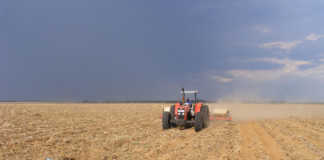
Deon Joubert, Citrus Growers’ Association (CGA)’s special envoy: market access and EU matters, said that South Africa had been exporting citrus to the EU for over 110 years, and over this time CBS contamination from South African citrus to European fruit had never occurred.
Besides this, other markets, such as the US, UK, China and Australia, are in agreement that the risk of establishment and spread of this fungal disease through trade in fresh fruit is completely negligible.
“CBS is a cosmetic issue that only affects a minuscule percentage of fruit exported, thanks to South Africa’s world-class control measures. Instead of these stringent regulations, we feel the EU should rather leave the decision up to consumers. South African exports to the EU have grown by more than 70% over the past decade. Consumers won’t buy the fruit if there was something wrong with it,” Joubert told Farmer’s Weekly.
The CGA and various South African government organisations have worked together for over 10 years to put a stop to some of the EU’s regulations, but the EU has continued to enforce rules that are unscientific and irrational, according to Joubert.
Recently, it also emerged that CBS tests in Belgium and Portugal proved to be unreliable and resulting in false positives. “For instance, Portugal claims a CBS interception from among Western Cape fruit, while this province has been proven to be free of the pest,” Joubert said.
He said that the closure of the EU market because of spurious CBS interceptions would be a devastating blow to the South African citrus industry, as the EU market sustains a total of 70 000 jobs and generated R15 billion annually in foreign earnings.
Joubert believed the restrictions were part of an EU agenda to block South African trade and protect their own members, specifically the Spanish citrus industry.
Hannes de Waal, chairperson of the CGA in the Sundays River Valley, said the CBS risk management and compliance programmes were costing the industry millions of rand. The Bureau for Food and Agricultural Policy has quantified the cost of CBS risk management in South Africa for the EU market in excess of R2 billion per year.
Another threat is that many of the products used to manage CBS are in the process of being phased out, and it is is uncertain whether the new alternatives will be as efficient.
“CBS management will not stop if the EU eases regulations, but programmes would become less intensive,” De Waal said.
He said that farms on which infected fruit were found were not allowed to export from the affected orchards to the EU, but this could be expanded to the whole farm, depending on the number of fruit found. “The problem is that you need to export more than 40% of your fruit to the EU, otherwise you will not be financially viable.”
The CGA has called on President Cyril Ramaphosa to urgently intervene in the situation. “It is time for the South African government to draw a line in the sand and call for an official World Trade Organization dispute with the EU regarding their CBS regulations,” Joubert said.











